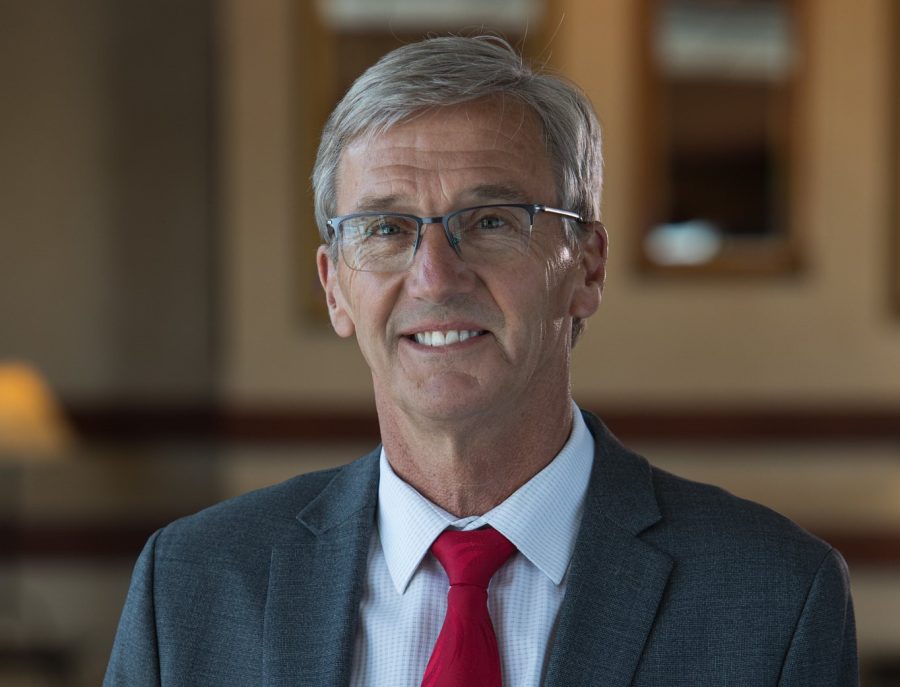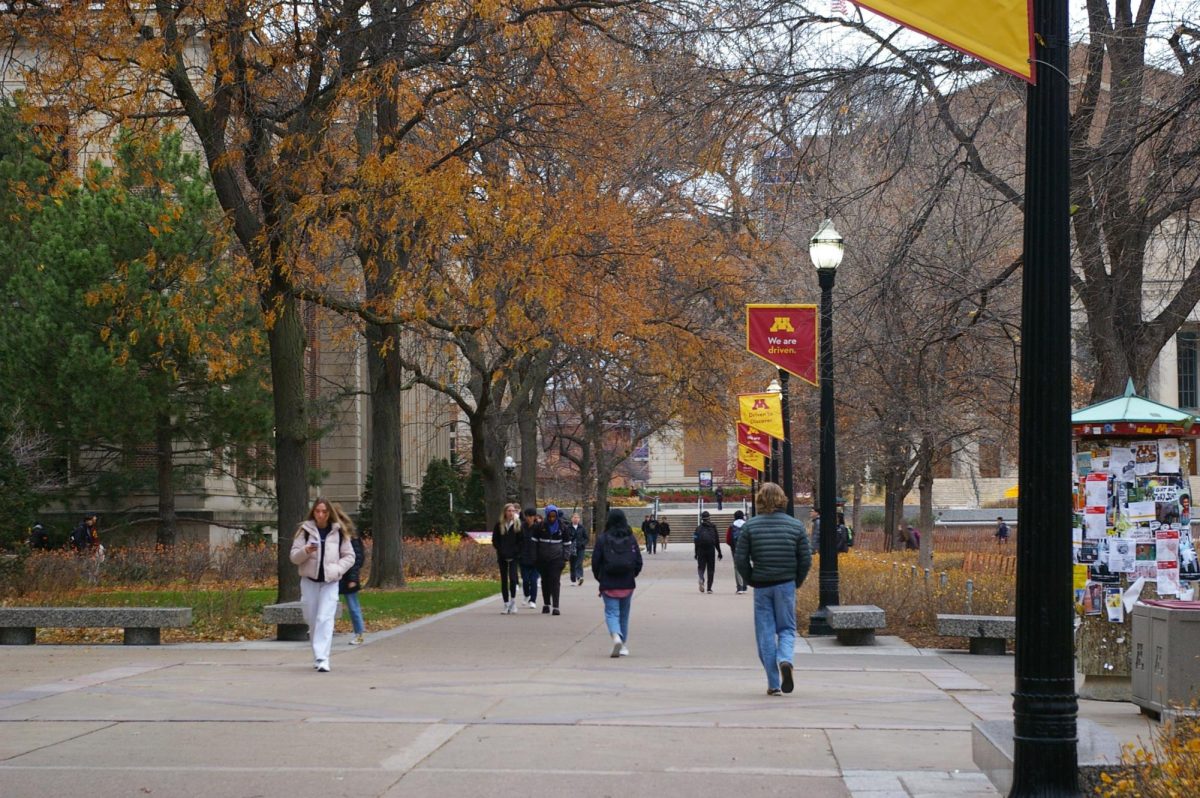Former Gopher and state senator Scott Jensen is the Republican nominee running to be Minnesota’s next governor in the Nov. 8 election. Jensen called the Minnesota Daily on Oct. 3 to talk about a range of election issues facing students, from public safety to abortion.
Since the June Supreme Court ruling to overturn Roe v. Wade, the University of Minnesota has seen several demonstrations from students protesting the decision. Jensen has shifted his stance on abortion, originally being against it in almost all cases, but recently said the right is Constitutionally protected in Minnesota and any change should come from the people.
Jensen’s running mate is former football player Matt Birk. Birk came under fire over the summer for comments he made in June at a National Right to Life conference about abortion rights and women working.
Jensen served in the Minnesota Senate for four years and rose to prominence in conservative spheres during the COVID-19 pandemic for publicly speculating how case numbers were being recorded. Jensen, a doctor, has been accused of spreading misinformation about COVID-19 on multiple occasions.
He announced his run for governor in March 2021, two months after retiring from the Senate.
The GOP nominee has repeatedly attacked incumbent Gov. Tim Walz’s record on crime, citing the riots that occurred in May 2020 after former Minneapolis police officer Derek Chauvin killed George Floyd. Hennepin County experienced on average a 20.3% increase in violent crime in 2021 between four metrics of violent crime, according to the Bureau of Criminal Apprehension’s Uniform Crime Report.
Abortion access, of course, is top of mind for many voters, including students. While you’ve most recently said that it is a Constitutional right, if a bill comes before your desk or there is gubernatorial action required for a legal act, how will you engage with your constituents before making that decision?
“Abortion clearly is not on the ballot in November. Tim Walz has said on multiple social media posts, as has Keith Ellison, and I agree with both of them there: no governor can change that. [Abortion] is a constitutionally protected right for all women … The bottom line is the governor has the responsibility to make certain that all laws are enforced, and those laws come through the legislative branch or through the judiciary branch. And that’s exactly what I will do.
And the law that provides constitutional protection for all women is clearly in place, it’s been litigated already. I would enforce the law as the [Minnesota] Supreme Court has passed their decision. If there’s going to be any change, that would have to be by constitutional ballot and that would be up to the people in Minnesota, and the governor has no role in that. The governor does not veto that, he does not sign that, it’s entirely outside the governor’s purview.
I think we right now are in a place where I think the pro-life movement has an opportunity, really stand up for women and say, ‘Listen, this is a shared responsibility.’ The whole concept of family planning [and] anticipating pregnancies, we should do things like other countries in Europe have done.
We should have birth control pills over the counter. We should put a ceiling cap on them, perhaps $10 per month. We should have available and ready access to Plan B or the morning-after pill. We should have paid maternity leave for women who have children. We should have streamlining of adoption. So that if parents decide to go in that direction, they know that there’s support. We should have harsher penalties for crimes that target women such as rape and robbery and carjacking. This is an opportunity for the pro-life movement to say we are going to stand up for women and try to truly protect and support them.”
You’ve criticized Walz’s COVID response. As of now, we’re beyond a declared state of emergency and beyond a state COVID response. Would you consider making any changes to the power of a governor to prevent a similar situation from occurring?
“Defining what an emergency is, or how long a single person can retain emperor-like powers should not be left to the person who holds the powers. What we saw here was a governor who was willing to take emergency powers and use them for political gain. That means we can never let this happen again; we need to rewrite emergency powers.
It should not be that the House of Representatives and the Senate have to both veto emergency powers. It should be that the House and the Senate both have to reaffirm the power every span of time being requested. And with each interval being requested, it should be a greater challenge to get that approved. So, in the initial phase of an emergency, or possible emergency, it should be both the House and the Senate approving it. But if there’s another increment of time requested, there should probably be a supermajority required.
I’m convinced that senators and representatives, Republicans or Democrats will not quibble about whether something is an emergency—if we’re facing a true emergency. If we have a real emergency…I do not believe that legislators will turn that into a political bickering session. But I do think an individual will, and we’ve seen it play out in real-time: [Walz] abused emergency powers for political gain and that should never happen again.”
Recently, the Minneapolis Police Department (MPD) and the University of Minnesota Police Department (UMPD) started to rebuild their relationship after severing it in 2020, yet UMPD said they are still nearly 15 officers (of 65) short. How will you as governor help local police departments like ours to respond to rising crime?
“We absolutely have to put more cops on the street. If you don’t feel safe, then you aren’t safe. The same way that we’ve got moms and dads in neighborhoods wanting to be able to let their kids play in the front yard, we need to ensure that those communities are safe…I think part of the issue is always where the dollar is being deployed. There’s been an unfortunate belittling of the word ‘police’ from the governor’s office and that has to stop. The bully pulpit of the governor is a powerful tool to elevate the various issues that face a society. I don’t think that that’s been used. I would say we need more cops on the street corner.
We need a restorative justice program, such as someone that thinks that they can deface a building that isn’t theirs, and that they’re going to be held responsible for the repair. If they wanted to base bridges and put graffiti up there that, frankly, is offensive to so many people. That’s going to be their responsibility. I think we need to use incarceration as a tool for repeat violent felons. And I think we also need to understand that mandated minimum sentences mean just mandated minimum sentencing. And that’s what we need to enforce the law.”
Over the past year and with a variety of decisions, Regents have been criticized by students for making decisions without their input. What criteria would you look for in a regent so they serve the taxpayer and the students?
“I think, when you look at all the steps necessary for a regent to be designated, who will be a regent, you go through the legislature…And I think too often, it’s partisan in nature. Because of that, I think the students at the University oftentimes feel like their voice is secondary…We should de-politicize some of these positions, whether you’re talking about the Board of Regents, the Minnesota Board of Medical Practice and even the Met Council composition. I think we’ve allowed so much of this to be politicized and then we wonder why the everyday person is so frustrated.
I spent so much time at the University—I was there from basically 1973 to 1981—and I think it’s critically important that the students feel that their voice is not a token voice, but it’s a real voice. And if that means that we create at-large, or two at-large positions, to make certain that the student voice is being represented, then so be it.”
What would you say to students who aren’t sure about supporting you?
“I think students have a strong inclination toward a refreshing, no-holds-barred approach to the problems of the day. We need young people more involved in the political process. We need commissioners who are in their 20’s and 30’s. We need the Gen Zs and the millennials at the table of problem-solving. We haven’t done so well without them. I’m not, if you will, a career politician looking for a new career. I’m a 67-year-old family doctor who is really focused on solving problems. And I think young people are focused on solving problems.”
This interview has been edited for clarity and length.















Elizabeth
Oct 10, 2022 at 12:06 am
Cmon